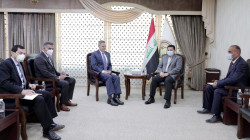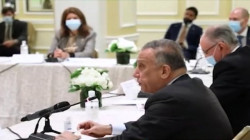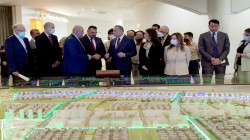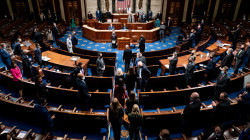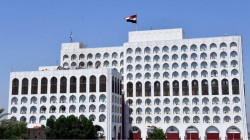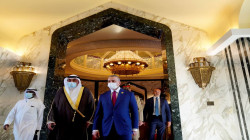Women in al-Sudani's cabinet: how culture becomes the biggest challenge
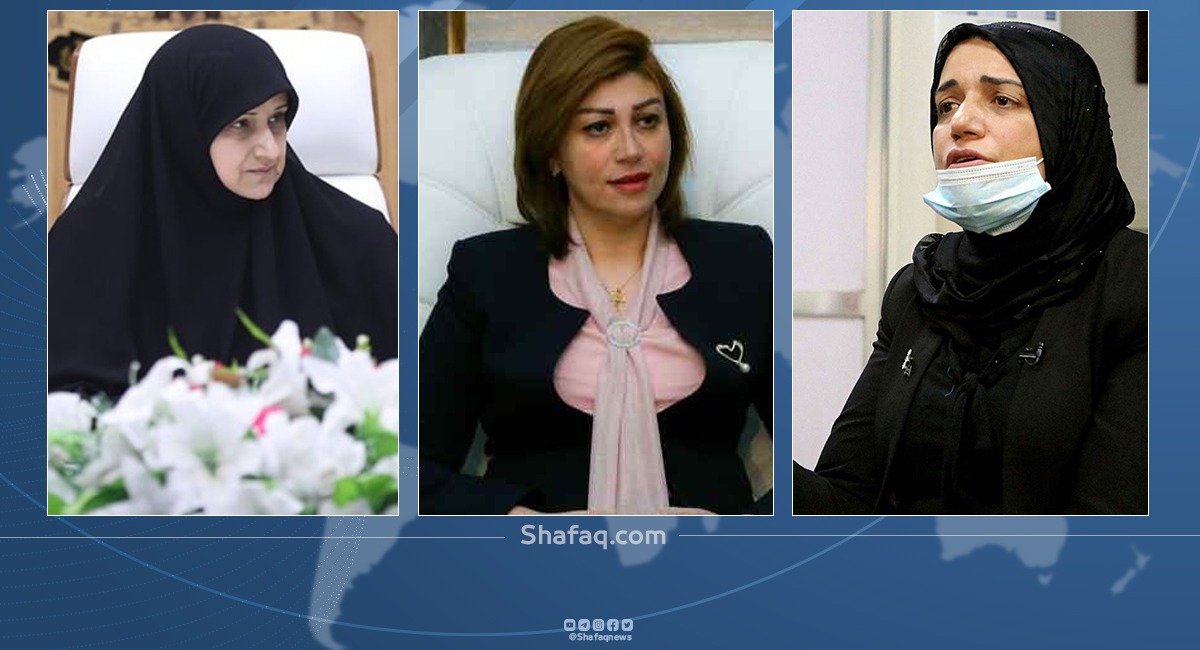
Shafaq News/ even though it has been more than 19 years since the fall of the former regime, women are yet to be a common feature in the successive cabinets that have run the country.
Nisreen Barwari was the first woman to assume a portfolio when she held the public works ministry in the first cabinet during the transitional administration. Back then, former Prime Minister Ayad Allawi's cabinet featured six women; a record he still holds today.
Ibrahim al-Jaafari's cabinet was quite close to matching the record with five women. The following governments stood afar by a margin; Nouri al-Maliki's first government featured three women, while only two managed to break into the cabinet in his second spell.
Under Haider al-Abadi's government, the only woman who managed to make it to the cabinet was a state minister. The post was abolished later, and the cabinet lasted without a feminine element until 2016 when another woman was appointed as a minister.
Adel Abdul-Mahdi did not include any woman in his starting lineup. However, a woman managed to win the parliament's confidence for the education portfolio during its final days.
In Mustafa al-Kadhimi's cabinet, the only female figure was assigned to the Ministry of Migration and Displacement, while the incumbent government of Mohamed Shia al-Sudani features three women in the ministries of finance, communications, and migration.
Evan Yaakoub Gabro
Born in Basra in 1981, Evan Gabro holds a bachelor's degree in microbiology from the Faculty of Science at Basra University and was a resident of Mosul before ISIS took control of Nineveh.
The youngest minister in the current lineup has served in a variety of positions. She was a former Minister of migration, a member of the Council of Ministers' Reconstruction and Services Committee, a member of the Iraqi-Jordanian-Egyptian Trilateral Coordinating Council, a member of the Council of Ministers' Committee for the Economic Empowerment of Women, a Chairperson of the Ministry of Migration and Displacement's Higher Committee for Relief and Support of Displaced Persons, and a Chairperson of the Supreme National Committee to follow up the situation of Iraqis broad.
Taif Sami
Taif Sami is the new Finance Minister. Born in Baghdad in 1963, she holds a bachelor's degree in economics from the University of Baghdad's Faculty of Administration and Economics.
She served as an undersecretary of the Ministry of Finance from 2019 until the day she was appointed Minister of Finance, as Director General of the Ministry of Finance's Budget Department since 2010, and as a member of numerous government committees both inside and outside the country.
Hiyam Abboud
Last but not least, the Ministry of Communications was assigned to Hiyam Abboud, who has a doctorate in telecommunications engineering from Australia's Curtin University of Technology, and a doctorate in communications engineering from Baghdad's University of Technology.
She served in many positions, including director of the Martyrs Foundation's finance administrative department, counselor to the Minister of Communications from 2007 to 2021, and other posts within her expertise at the University of Technology and the Iraqi government.
Growing role
"Women have always been capable of changing the reality," the Director General of the women's social protection department at the Ministry of Labor and Social Affairs, Utour Al-Musawi, told Shafaq News Agency, "I took over at a time the department had zero funding. It was a huge obstacle back then since our mission is supporting women who have no provider."
She said, "the culture of our community believes that women are unable to assume, rather than succeed, in major positions in the government. The reality, on the other hand, proves the opposite."
"The culture of generalization also contributes to this misconception. A one woman's failure is enough to be applied to all women. Men, on the contrary, are not subject to this notion."
Women in security positions?
Badr Ziyadi, a former member of the parliamentary security and defense committee, believes that "the current security challenges have made it uneasy for a woman to hold a portfolio with a task related to security. However, we might witness a significant shift in favor of women in the near future, particularly with women holding key security posts in previous and present governments, and a woman at the top of the finance ministry; one of Iraq's most powerful ministries."
Leadership qualities
Author and researcher in political affairs, Atheer al-Sharaa', believes that "past experiences have proved that women can make difficult decisions and assume huge leadership and administrative responsibilities. Many figures have shown they are reliable in many sensitive posts. We do not rule out the possibility of seeing a woman in al-Salam palace soon."
"Women assuming key portfolios, like finance, at such a critical period of the country's history is a sign that women are very close to being at higher positions, like the presidency," she concluded, "appointing women as ministers is, by itself, a challenge that challenges the perceptions and impressions of many who doubt their performance and decision-making qualities."
